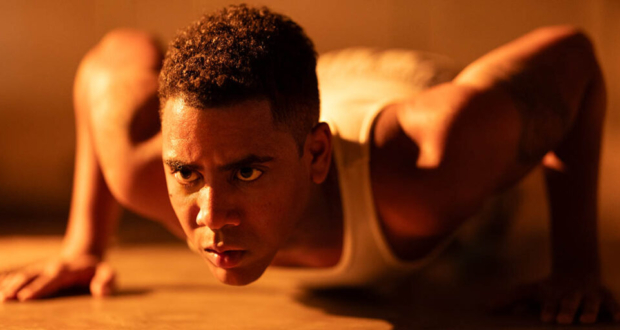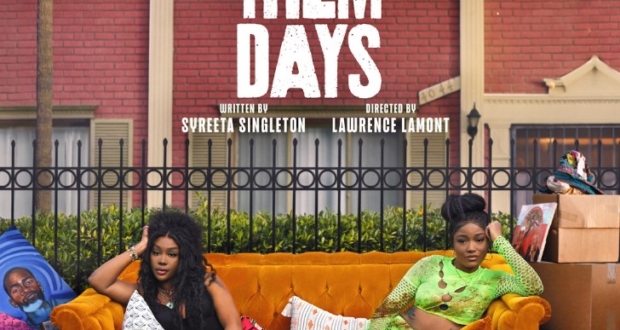Director James Adolphus, who helmed the documentary “Being Mary Tyler Moore,” was asked about his exposure to Mary Tyler Moore before he undertook to make this extraordinarily intimate 2- hour film about her life.
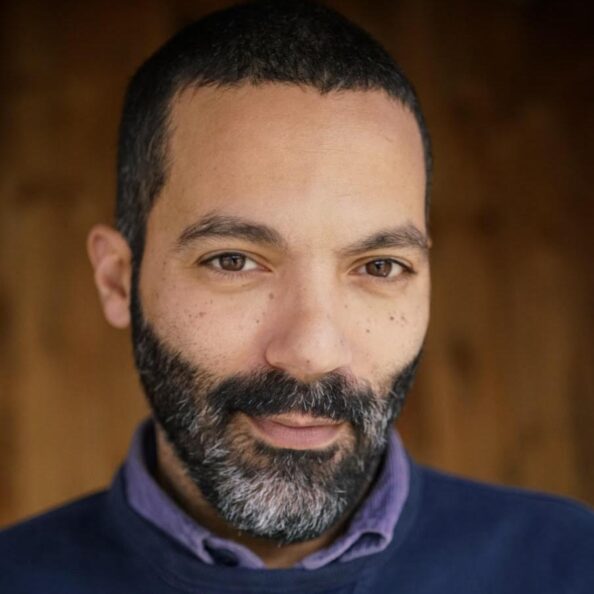 He admitted that he had never watched any of her shows, that she was more of a figure that his mother knew about. (“I knew her from the lyric in the Weezer song.”) He then said, “It’s odd to make a film about someone you don’t know and to fall in love with someone after the fact. She felt like my cousin, my sister. She had to fight back against the patriarchy.”
He admitted that he had never watched any of her shows, that she was more of a figure that his mother knew about. (“I knew her from the lyric in the Weezer song.”) He then said, “It’s odd to make a film about someone you don’t know and to fall in love with someone after the fact. She felt like my cousin, my sister. She had to fight back against the patriarchy.”
The documentary is an attempt to reconcile the insecure woman who looked so proud and regal with the real woman who was not that way at all. It was an attempt to show the real person beneath the veneer. With the help of many clips from “The Dick Van Dyke Show” and “The Mary Tyler Moore Show” and various interviews, it more than succeeds.
One week after the 18-year-old MTM graduated from high school, she got a job portraying Happy Hotpoint in television ads. The problem was that the young Mary had married Richard Meeker in 1954, at age eighteen. She soon turned up pregnant, giving birth to her only child, Richard, and losing the Happy Hotpoint job in the process.
Later in the film, we learn that Moore’s own mother would give birth to a daughter, Elizabeth, at age 40, only a few months after Richard’s birth, giving Mary a younger sister, as well as a brother, John, who was 7 years younger. There were references to Mary’s mother’s alcoholism, but they were married for more than 50 years. Her mother eventually sobered up and even took on the duties of caring for the two youngsters, Elizabeth and Richard, who were so close in age.
Mary’s marriage to Meeker did not last; she would marry again, in 1962, barely a month out of her first marriage, to Grant Tinker, to whom she would remain married for 18 years. Her career, in 1959, included a stint as Sexy Sam, the faceless voice on “Richard Diamond, Private Investigator.” When she asked for a raise from her $85 per episode salary, she was fired.
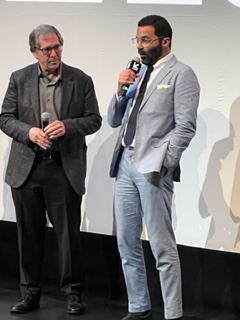
Dr. S. Robert Levine, husband of Mary Tyler Moore and Executive Producer, and James Adolphus, Director of the documentary “Being Mary Tyler Moore” at SXSW (March 13, 2023).
Enter Carl Reiner, a comic mentor who envisioned her as the character Laurie Petrie, the wife in a 1960 pilot dubbed “Head of the Family,” which eventually morphed into “The Dick Van Dyke Show.” When David Susskind suggested, in a somewhat offensive interview, that women should not work, Mary retorted, “I could waste a lot more energy sitting around chatting with other gals all day.” She became exactly what the network was horrified by: a contemporary woman. She also insisted on wearing pants, which broke new ground. (As a former junior high school teacher who insisted on wearing pants suits in 1969 at a time when they were banned, I could relate.)
Throughout the documentary, we learn just how groundbreaking Mary Tyler Moore would become. This was just the beginning. In interviews, Mary referred to the period as “An unenlightened time. I believe in figuring out a way to contribute.”
At the end of the 5-year run of “The Dick Van Dyke Show” Mary was a hot property who charmed men without antagonizing their wives. She had a comic flair that no less an expert than Lucille Ball recognized and applauded. She was offered a picture deal with Universal and—unusual for the time—had the right to refuse to do pictures that she did not think would benefit her image. However, in order to be given permission to star in a musical version of “Breakfast at Tiffany’s” on Broadway, Mary would give up that right of refusal. Following the Broadway bomb the show became, she would end up in films like “Change of Habit” (1969) opposite Elvis.
In 1968, when she was 32, a miscarriage led to her diagnosis of a diabetes. With a blood sugar level of 700, she was fortunate to have been discovered to have the disease, which would end her life at the age of 80 in 2017.
Broadway having bombed, CBS offered her her own show, and Mary and Grant Tinker, her then-husband, jumped at the chance. Tinker saw that forming their own company would be beneficial and Mary Tyler Moore Enterprises was born. Tinker ran the business and Mary Tyler Moore was the figurehead and the talent. At one time, MTM Enterprises had 6 shows on the air at once. Meanwhile, Tinker hired Jim Brooks and Allan Burns to write Mary’s show, which would place Mary Tyler Moore in Minneapolis as a woman making it on her own at the age of thirty as an independent entity.
I remember how groundbreaking it was for the goal to be not just to marry ASA{. but to be independent and live on one’s own. My own mother had lived the life accepted by today’s women in 1927, so, for me, Mary was embodying the idea of utilizing female talent for more than just making babies and cleaning the house.
Ironically, at this point, in her real-life Mary Tyler Moore had never been on her own; she had been married since she was 18 years old. The entire idea of pushing young women into marriage was covered in 1979’s “Kramer versus Kramer,” where Meryl Streep articulated this “never been on my own” status all the way to 5 Oscars. Mary Tyler Moore lived the fifties ideal of marriage after school “as soon as possible,” but, personally, she remained mired in marital bliss until she was 44 years old when she and Tinker divorced and she moved to New York City.
The show that Mary Tyler Moore launched, about a thirtyish woman making it on her own in the Midwest at a small TV station, was a risk. It was almost killed by a terrible time slot, until Fred Silverman took over the network, axed a lot of comedies like “Green Acres’ and moved “The Mary Tyler Moore Show” into the best time slot on television. It was, as Rosie O’Donnell termed it, “Appointment TV” and placed her show on the same night as “All in the Family” and alongside Bob Newhart’s show on Saturday nights. The rest is history, as the talented cast garnered multiple awards and still has one of the best endings of any series sitcom on television, past or present.
Mary Tyler Moore won 7 Emmies, and 3 Golden Globes, and earned an Oscar nomination (for “Ordinary People”). And, as the documentary terms it, “As Mary Tyle Moore goes, so goes the nation,” which also meant welcoming the 1973 Supreme Court decision to allow women the right to decide whether or not to have an abortion.
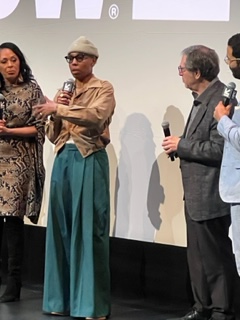
Lena Waithe (“Ready, Player One”) answers questions about the film “Being Mary Tyler Moore” during the Q&A following the showing of the documentary at SXSW at the Zach Theater on March 13, 2023.
In 1980, immediately after her divorce from Tinker, Mary conquered Broadway with her performance replacing Tony-winner Tom Conti in the play “Whose Life Is It, Anyway?” Meanwhile, she described herself as “going through adolescence” in New York City, as she was said to be involved with Michael Lindsay-Hogg, the director of the play. She was socializing after years of marriage. However, she was drinking more than she should have been, and, as he noted, sometimes that could lead to belligerence on her part. She would curb this possibly inherited tendency towards alcoholism through a stint at the Betty Ford Clinic.
In 1980, Mary Tyler Moore was nominated as Best Actress for her role as Beth in “Ordinary People” opposite Donald Sutherland and Timothy Hutton. Director Robert Redford said he had always been fascinated by the possibility of a dark side to MTM, who might have been brittle inside, harboring a pensiveness, anger, hurt, and confusion over such issues as her inability to connect meaningfully with her son Richard.
In 1980 Richard, then aged 24, would die of a gunshot wound. The documentary says he had a gun collection, was inherently clumsy, and it was an accident. Three weeks after his death, MTM would be nominated for an Oscar as Best Actress for her role in “Ordinary People.” She would also lost her younger sister, Elizabeth, age 21, to suicide and her younger brother John would die of kidney cancer as she held his hand.
Mary met Dr. Robert Levine, her third husband when he cared for her ailing mother in 1982. The line from the documentary is that “She fell in love for the first time in her life,” (which seems debatable.) However, the 14-years-younger Levine would remain her husband till the end. Her friends say that he may have kept her alive for an additional ten years, as she was hospitalized numerous times.
The couple was devoted to one another and lived a bucolic life in rural Connecticut. The now 73-year-old Levine reached out to Lena Waithe (“Ready Player One,” “Master of None”) after reading an interview in “Vanity Fair,” in which she expressed an interest in doing a documentary about Mary Tyler Moore’s life.
When asked about his decision to share his private film of Mary with Producer/Director/Writer Waite, Dr.Levine said, to laughter, “To have a Black queer girl from the South side of Chicago want to tell her story. Are you kidding me?”
Dr. Levine was asked what surprised him after seeing the film, and he responded, “I had never seen the bridal shower footage with Betty White. It was simple and natural. She talked about me making her a tuna fish sandwich in the middle of the night. Things like that had the most impact. In life, it is the simple kindnesses that really have the most impact. The journey of her life was the journey of women in this country. As a human being, she felt the need to keep going forward. I didn’t want a derivative feeling. A new voice coming forward (Lena Waithe) was interesting to me.” Waithe added, “I wanted to give a real sense of how she was as a person.” The decision to use voice-over(s) rather than the talking head documentary approach was said to be Waithe’s.
The documentary is long, at 2 hours, but it is very good. I would highly recommend it if you were or are a fan of Mary Tyler Moore’s work. She helped raise over $2 billion for Juvenile Diabetes and gave many other working women a model that remains groundbreaking.
Credits:
Venue: SXSW Film Festival (Documentary Spotlight)
Distributor: HBO
Production companies: HBO Documentary Films, Fifth Season, Hillman Grad, The Mission Entertainment, Good Trouble Studios
Director: James Adolphus
Producers: Ben Selkow, James Adolphus, Lena Waithe, Rishi Rajani, Debra Martin Chase, Andrew C. Coles, Laura Gardner
Executive producers: S. Robert Levine, Michael Bernstein, Nancy Abraham, Lisa Heller
Cinematography: James Adolphus
Editor: Mariah Rehmet
Archival Producer: Libby Kreutz
Music: Theodosia Roussos
2 hour










